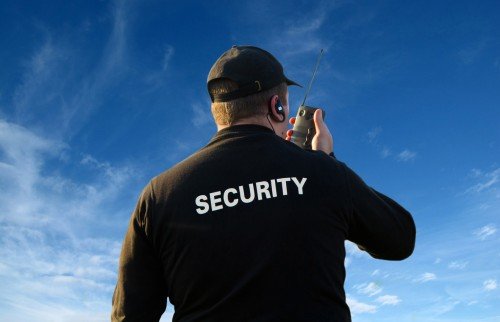
Moldova, like many other countries, faces various security challenges that require innovative solutions. The good news is that there are several new technologies and security agencies that can help keep you safe in Moldova. In this blog post, we will explore some of the latest technologies and security agencies that you can turn to for enhanced security.
CCTV cameras
Closed-circuit television (CCTV) cameras are one of the most popular security technologies used in Moldova. These cameras are used to monitor public places, commercial establishments, and residential areas. CCTV cameras have proven to be effective in deterring crime and identifying suspects in criminal investigations.
Closed-circuit television (CCTV) cameras are a type of video surveillance technology used to monitor and record activity in public spaces, commercial establishments, and private properties. These cameras can be used for various purposes, including deterring crime, identifying suspects in criminal investigations, and monitoring traffic and public safety.
CCTV cameras can be either wired or wireless and come in a variety of sizes and shapes, ranging from small, discreet cameras to large, visible ones. They can be placed in strategic locations to provide maximum coverage and can be equipped with advanced features such as high-resolution imaging, night vision, and motion detection.
In Moldova, CCTV cameras are commonly used in urban areas, transportation hubs, and commercial establishments to enhance security and deter crime. The government has also implemented initiatives to increase the number of CCTV cameras in the country and improve their quality.
While CCTV cameras can be an effective tool for enhancing security, they also raise concerns about privacy and civil liberties. Some people worry that CCTV cameras can be used for illegal surveillance or invade their privacy. It is therefore essential to ensure that CCTV cameras are used in accordance with legal and ethical guidelines and that their installation and operation are subject to appropriate oversight and regulation.
Biometric identification systems
Biometric identification systems use physical characteristics such as fingerprints, facial recognition, and iris scans to identify individuals. These systems are commonly used in airports, border control, and law enforcement agencies to track and monitor people's movements.
Biometric identification systems use physical characteristics unique to individuals, such as fingerprints, facial recognition, or iris scans, to identify and verify their identity. This technology has become increasingly popular in recent years and is being used for a wide range of purposes, including border control, law enforcement, and access control systems.
In Moldova, biometric identification systems are widely used in airports, border crossings, and law enforcement agencies to verify the identity of individuals and prevent fraud and identity theft. The country has implemented biometric passports, which use facial recognition and fingerprint scans to ensure the authenticity of passport holders.
One of the main advantages of biometric identification systems is that they are highly accurate and difficult to replicate or forge. This makes them an effective tool for enhancing security and preventing fraud. However, there are also concerns about the potential misuse of biometric data and the violation of privacy rights.
To address these concerns, it is important to ensure that biometric identification systems are implemented in a transparent and accountable manner and that appropriate legal and regulatory frameworks are in place to protect individuals' privacy rights. Additionally, it is essential to ensure that biometric data is stored securely and used only for legitimate purposes.
Cybersecurity agencies
As technology advances, cybersecurity threats are becoming more prevalent. In response to this, Moldova has established several cybersecurity agencies to combat cybercrime. These agencies are responsible for protecting government networks, critical infrastructure, and private sector networks from cyberattacks.
Cybersecurity agencies are specialized government entities tasked with protecting networks, systems, and information from cyber threats. These agencies play a critical role in ensuring the safety and security of digital infrastructure and preventing cyber attacks that could compromise sensitive information or disrupt critical services.
In Moldova, several cybersecurity agencies have been established to address the growing threat of cybercrime. These include the National Center for Cybersecurity, the Information Technology and Cyber Security Service, and the Center for Combating Cybercrime.
The National Center for Cybersecurity is responsible for coordinating and implementing national cybersecurity policy and providing technical assistance and support to government agencies and private sector organizations. The Information Technology and Cyber Security Service is responsible for ensuring the security of government networks and critical infrastructure, while the Center for Combating Cybercrime is responsible for investigating and prosecuting cybercrime.
To be effective, cybersecurity agencies need to have access to the latest technology and tools to detect, prevent, and respond to cyber threats. They also need to work closely with other government agencies, private sector organizations, and international partners to share information and coordinate their efforts.
Overall, cybersecurity agencies are essential for protecting digital infrastructure and ensuring the safety and security of individuals and organizations in the digital age. By investing in cybersecurity and working together, governments and private sector organizations can help to prevent cyber attacks and minimize the impact of those that do occur.
Emergency response services
Moldova has established several emergency response services such as the national emergency response service and the police emergency number. These services are available 24/7 and can be reached through a toll-free number. They are responsible for responding to emergencies such as fires, medical emergencies, and criminal activities.
Mobile apps for security
Mobile apps have become a popular tool for enhancing security. There are several mobile apps available in Moldova that can help you stay safe. These apps allow you to report crimes, share your location with friends and family, and receive alerts about potential security threats in your area.
In conclusion, Moldova has several technologies and security agencies that can help keep you safe. It is important to take advantage of these resources to ensure your safety and the safety of those around you. By staying informed and utilizing these tools, you can help make Moldova a safer place.








